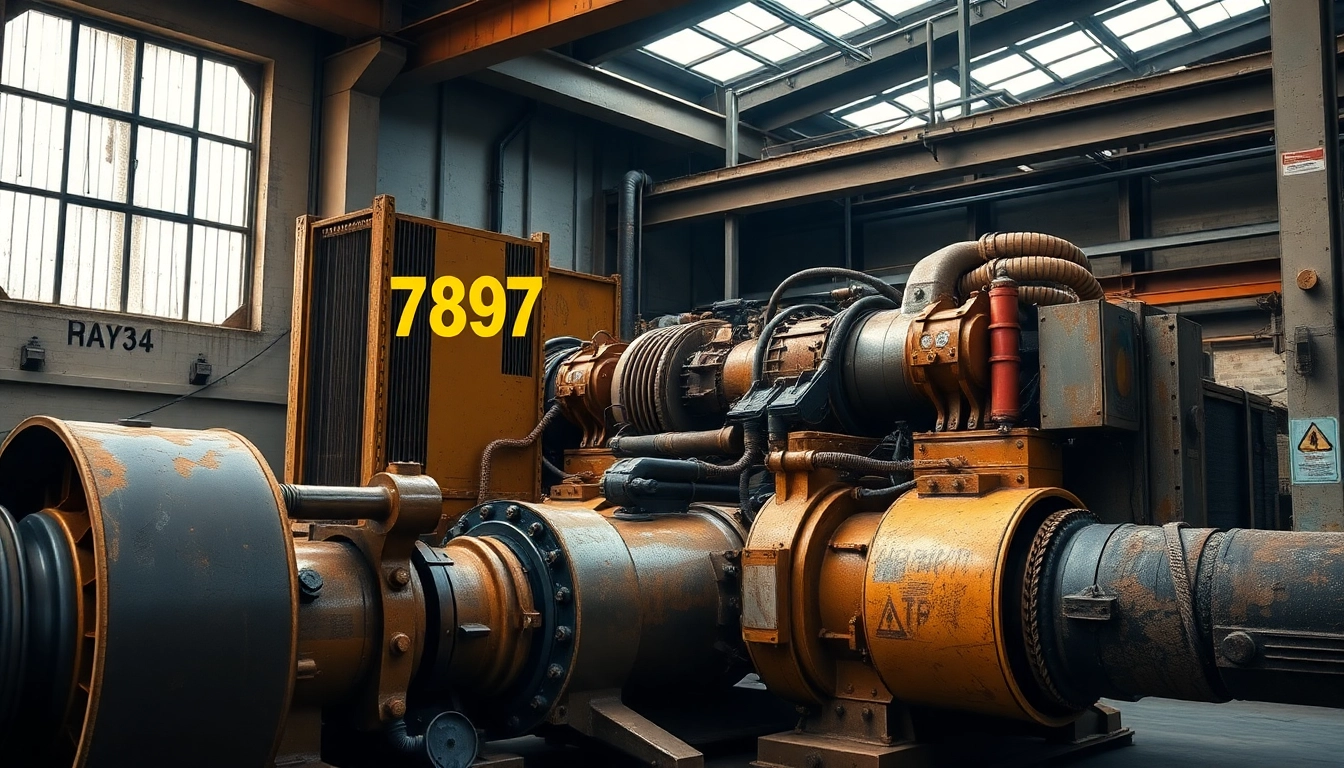Introduction to Forklift Rental: Benefits and Overview
In today’s fast-paced industrial and commercial environments, efficient material handling is crucial to maintaining productivity and competitiveness. Forklifts have long been an essential component of manufacturing plants, warehouses, construction sites, and logistics companies. However, acquiring these complex machines outright involves significant capital investment, maintenance costs, and storage considerations. As a practical alternative, forklift rental offers a flexible, cost-effective solution tailored to dynamic operational needs. Whether you need a forklift for a short-term project or a long-term deployment, rental services provide access to a diverse fleet of equipment, expert support, and scalable options. This article explores the comprehensive landscape of forklift rental, its strategic advantages, selection criteria, cost optimization strategies, and the future trends shaping the industry.
Understanding the Basics of Forklift Rental
What Is Forklift Rental?
Forklift rental is the process of leasing heavy-duty lifting equipment for a specified period, ranging from a single day to several years. Unlike outright purchasing, rental agreements typically include maintenance, insurance, and technical support, reducing operational complexity for businesses. Rental companies maintain a wide inventory of forklifts, allowing clients to select the type, capacity, and features that best suit their operations. For organizations seeking flexibility and cost control, forklift rental serves as a practical approach to meet fluctuating workload demands without long-term commitments.
Types of Forklifts Available for Rent
Rental fleets include various forklift types designed for specific operational environments:
- Electric Forklifts: Ideal for indoor use, these are environmentally friendly, produce no emissions, and operate quietly. Suitable for warehouse environments with smooth floors.
- Diesel Forklifts: Suitable for outdoor applications, heavy lifting, and rough terrains. They offer higher power and longer operational hours but generate exhaust fumes.
- LPG (Liquefied Petroleum Gas) Forklifts: A versatile option for both indoor and outdoor use, combining the benefits of electric and diesel models with lower emissions than diesel.
Selecting the appropriate forklift type depends on the specific use case, environment, and operational requirements.
Key Advantages of Renting Over Buying
Cost-Effectiveness and Financial Flexibility
One of the primary benefits of forklift rental is immediate cost savings. Purchasing a new forklift involves substantial upfront capital, maintenance expenses, and depreciation. Conversely, rental costs are predictable, often include maintenance, and eliminate the need for large initial investments. This financial flexibility allows companies to allocate resources elsewhere and adapt to market fluctuations more effectively.
Reduced Maintenance Burden
Rental companies handle routine maintenance, repairs, and servicing, ensuring that equipment is always in optimal condition. This minimizes downtime and frees internal resources, allowing your team to focus on core operations rather than equipment upkeep.
Access to Modern, Well-Maintained Equipment
Rental providers regularly update their fleets with the latest models featuring advanced technology and safety features. This ensures your operations benefit from innovations such as improved battery life, enhanced stability, and compliance with safety standards.
Flexibility to Scale Operations
As business demands fluctuate, rental agreements enable quick scaling up or down without the complications of selling or storing idle machinery. You can rent additional forklifts during peak periods or return equipment when demand declines.
Testing Before Commitment
Renting offers an excellent opportunity to test different forklift models and configurations before making a long-term purchase decision, reducing the risk of investing in unsuitable equipment.
How Forklift Rental Supports Business Growth
Enhancing Operational Flexibility
Rental solutions empower businesses to respond rapidly to project demands, seasonal spikes, or expansion plans. This agility ensures operational continuity without the delays associated with procurement procedures.
Facilitating Cost Management and Budget Planning
By choosing rental agreements, companies can convert large capital expenditures into predictable operating expenses. This simplifies budgeting, financial forecasting, and cash flow management.
Access to Specialized Equipment and Technology
Rental companies often offer a broad array of forklift variants, attachments, and the latest technological features. This diversity helps businesses adopt innovative solutions tailored to their unique logistics challenges.
Supporting Short-Term Projects and Emergency Needs
Whether undertaking a construction project, warehouse overhaul, or emergency response, forklift rental provides immediate access to reliable equipment, avoiding costly delays.
Case Study: Warehousing Expansion
A UK-based logistics firm undertook a rapid warehouse expansion, requiring an additional fleet of forklifts for six months. By opting for rental, they avoided capital investment and maintenance burdens while maintaining high operational standards. The flexibility allowed them to seamlessly adjust fleet size and models, leading to timely project completion and cost savings.
Choosing the Right Forklift Rental Provider
Factors to Consider for Effective Rental Agreements
Selecting a reputable rental provider involves evaluating several critical factors:
- Fleet Diversity and Availability: Ensure the provider offers a wide range of forklifts suitable for your needs and can meet your timeline.
- Pricing Structure and Transparency: Clarify rental rates, including additional charges for maintenance, delivery, or insurance.
- Contract Flexibility: Look for adaptable rental terms, options for short-term or long-term rentals, and easy renewal or cancellation policies.
- Support and Maintenance Services: Confirm the availability of on-site support, emergency repairs, and routine servicing.
- Reputation and Customer Reviews: Opt for providers with proven track records, positive client feedback, and industry certifications.
Evaluating Fleet Options: Electric, Diesel, LPG
The choice of forklift fuel type significantly impacts operational efficiency, safety, and environmental compliance:
- Electric Forklifts: Best suited for indoor environments with smooth flooring, zero emissions, and lower noise levels. Ideal for warehouses aiming for environmentally friendly operations.
- Diesel Forklifts: Offer high power and durability for outdoor use on rugged terrain, construction sites, or heavy lifting tasks. However, they emit exhaust fumes, necessitating proper ventilation.
- LPG Forklifts: Provide a balance, suitable for both indoor and outdoor use, with cleaner emissions than diesel and longer operational periods.
Importance of Customer Support and Maintenance
A dependable support system ensures minimal downtime and safe operation. Look for providers offering 24/7 emergency assistance, scheduled maintenance, and training programs to keep your team competent and compliant with safety standards.
Optimizing Costs and Rental Plans
Comparing Short-term and Long-term Rental Options
Short-term rentals are suitable for temporary projects, seasonal peaks, or testing new equipment. Conversely, long-term rentals often come with discounted rates, maintenance packages, and the convenience of fixed contracts. Align your choice with project duration, budget constraints, and operational needs.
Budgeting for Forklift Rental Expenses
Effective budgeting requires understanding all cost components: hourly/daily rates, monthly fees, insurance, transportation, and maintenance. Track these expenses against productivity gains or cost savings from ownership to determine overall value.
Tips for Negotiating Best Rental Rates
Negotiation strategies include batching multiple equipment needs into a single contract, committing to longer rental periods for discounts, and leveraging competitive quotes. Building a strong relationship with your provider can also unlock favorable terms and priority support.
Implementing Forklift Rental in Your Operations
Step-by-step Rental Process
- Assess Your Needs: Determine capacity, type, frequency, and duration requirements.
- Research Providers: Compare fleets, prices, support services, and reviews.
- Request Quotes: Obtain detailed proposals and clarify inclusions/exclusions.
- Select a Provider: Evaluate based on reliability, support, and value.
- Finalize Agreement: Review contract terms, insurance policies, and schedules.
- Delivery and Setup: Coordinate logistics and operator training if necessary.
- Operate and Monitor: Use performance metrics to ensure efficiency and safety.
Training and Safety Regulations
Proper operator training and adherence to safety standards are non-negotiable. Most rental companies offer training sessions or can recommend certified providers. Establish clear safety protocols, conduct regular inspections, and enforce comprehensive safety policies to prevent accidents.
Integrating Rentals Into Logistics Planning
Incorporate rental schedules into your overall logistics strategy, aligning with inventory management, staffing, and project timelines. Use real-time tracking tools to monitor equipment utilization and plan for maintenance or replacement proactively.
Performance Tracking and Future Trends
Measuring Rental Effectiveness
Key performance indicators (KPIs) include equipment uptime, operational efficiency, safety incident rates, and cost savings. Regular analysis helps refine rental strategies, optimize fleet utilization, and justify ongoing investment.
Adapting to Technological Advancements
Innovations such as telematics, automation, and IoT integration are transforming forklift operations. Rental providers increasingly offer advanced models equipped with data sensors, predictive maintenance, and ergonomic features to enhance productivity and safety.
Emerging Trends in Forklift Rental Market
The industry is trending towards more sustainable solutions, including electric forklifts and renewable energy-powered machinery. Additionally, flexible rental contracts, operator-included packages, and integrated fleet management platforms are gaining popularity. Digital platforms enable seamless booking, tracking, and support, further streamlining the rental experience.



